For Turkey the Norwegian scenario cannot be applied
Adelina Marini, October 6, 2010
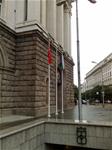 What would happen if Turkey would officially announce that it could follow the "Norwegian scenario" with regard to its relations with the European Union? On the one hand this would cause multiple relief sighs from many Member States which out loud or silently are against 70-million Muslim Turkey's membership; but, on the other hand, those who support its accession would point out that an incredible opportunity would be missed for the security and power of the European Union, especially with regard to the Middle East, with which the EU could have had a direct border if Turkey would become a member.
What would happen if Turkey would officially announce that it could follow the "Norwegian scenario" with regard to its relations with the European Union? On the one hand this would cause multiple relief sighs from many Member States which out loud or silently are against 70-million Muslim Turkey's membership; but, on the other hand, those who support its accession would point out that an incredible opportunity would be missed for the security and power of the European Union, especially with regard to the Middle East, with which the EU could have had a direct border if Turkey would become a member.
What is the Norwegian scenario?
Norway applied for EU membership, together with Britain, in 1963. France, however, turned down the British application, and as a result the accession negotiations with Norway, Denmark, Ireland and Britain were stalled. This happened twice. Norway completed successfully the negotiations in 1972 but after a referendum, the results of which were negative, Norway only joined the European Economic Area. The country has fully transposed the European legislation, it is a member of Schengen, but the society in the Scandinavian state rejected EU membership on a second referendum too and thus remained outside.
Last week EurActiv quoted the Turkish Chief Negotiator with the EU Egemen Bagis, who said "Maybe like in the case of the UK we will be vetoed, but again like the UK we will go through with determination and become a member […] Or like Norway, we will not become a member, but we will be closely linked to the EU". Mr Bagis said this in Brussels during a 2-hour discussion with media. The Chief Negotiator also hinted that it was possible Turkey too to hold a referendum:
"But I believe that by the time we have completed the negotiations, the approach of French people will not be similar to the approach of French people today. I strongly believe that by the time we complete the negotiations, the European Union member states would try to lobby to make sure that Turks vote to become members of the EU".
euinside had a wonderful opportunity to ask for more details about this new  Turkish position during the one-day visit to Bulgaria of Turkish PM Recep Tayyip Erdogan. Asked what this change of the position is due to, as well as is it possible Turkey to hold a referendum for its EU accession, Mr Erdogan responded that it was not very good to rely on media publications and that he talked to Mr Bagis. The Norwegian scenario cannot be applied to Turkey, he said and again heavily criticised the Union:
Turkish position during the one-day visit to Bulgaria of Turkish PM Recep Tayyip Erdogan. Asked what this change of the position is due to, as well as is it possible Turkey to hold a referendum for its EU accession, Mr Erdogan responded that it was not very good to rely on media publications and that he talked to Mr Bagis. The Norwegian scenario cannot be applied to Turkey, he said and again heavily criticised the Union:
"So far no such conditions have been put for any EU member state. For 50 years now Turkey is constantly being delayed and various obstacles are being put. We see that such obstacles are now being put before Croatia too with various arguments. These are not good things, these are not right things. If the EU supports its own enlargement, if the EU wants its structure diversified and if it sees in its structure a union of civilisation, it has to support this process. [...] And, in parallel, there is another obstacle - that some chapters are even impossible to be opened. We see that from time to time a chapter can be opened, sometimes two, and sometimes no chapters can be opened, but such periods of loss lead to a waste of time. But, nonetheless, we are patiently working, we study our lessons and hope to end with success".
Turkey started accession negotiations with the EU in 2005. Since then, however, the process is going on slowly because of the many unsolved disputes between the two sides - like the one with Cyprus. Because of the lack of progress on the issue, the EU has blocked the opening of 8 of the accession chapters and banned the closure of already completed chapters.
The Bulgarian position
No matter that Bulgaria is a member of the Union since 2007, the country has not yet presented an official position regarding Turkey's accession, aside from the protocol phrases that Bulgaria supports Turkey in the accession process and hopes the country to fulfill all criteria. Prime Minister Boyko Borissov did not make an exception by saying that Bulgaria, as a good neighbour, supports Turkey's European perspective. Asked whether Bulgaria should hold a referendum on Turkey's accession, Mr Borissov said: "Currently Turkey is working on the accession chapters and, according to the timetable, it has to close them. So the issue of a referendum today cannot be raised because Turkey still is walking the path of its European perspective".
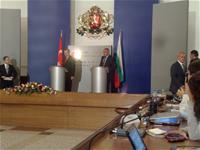 euinside recalled that when saying goodbye the French ambassador in Bulgaria Etienne de Poncins said that many European countries expect to hear our country's opinion with regard Turkey's membership to the EU. The Prime Minister got outraged by this recalling and said: "I don't see why we should deal with what someone had said. We are a sovereign country and we respect diplomats relevantly but in Bulgaria they have many times exceeded their powers. If our ambassador in Paris would start giving pieces of advice to Sarkozy like this, I think the French reaction would be to expel him. I think that in the presence of my colleague, when we are solving such complex issues between Bulgaria and Turkey, inherited with centuries and years, commenting on what a civil servant had said when leaving Bulgaria, I think you shouldn't even ask me".
euinside recalled that when saying goodbye the French ambassador in Bulgaria Etienne de Poncins said that many European countries expect to hear our country's opinion with regard Turkey's membership to the EU. The Prime Minister got outraged by this recalling and said: "I don't see why we should deal with what someone had said. We are a sovereign country and we respect diplomats relevantly but in Bulgaria they have many times exceeded their powers. If our ambassador in Paris would start giving pieces of advice to Sarkozy like this, I think the French reaction would be to expel him. I think that in the presence of my colleague, when we are solving such complex issues between Bulgaria and Turkey, inherited with centuries and years, commenting on what a civil servant had said when leaving Bulgaria, I think you shouldn't even ask me".
Aside from the extremely non-diplomatic tone which Mr Borissov used to respond to euinside, it is still not clear what exactly in His Excellency Etienne de Poncins's statement "went out of his powers". After all it is normal a country, which is a direct neighbour of Turkey and shares controversial history with it, to be asked whether it has objections to its membership or not. It is unlikely the recall that the Bulgarian opinion is expected and is important for its partners in the EU to be perceived as "an interference in sovereignty".
And as Boyko Borissov himself said, there are too important issues to be solved between Bulgaria and Turkey. This is why and no matter of the friendly tone between him and Recep Tayyip Erdogan, Sofia's position is more than important. And we, in fact, should be happy that someone is asking us because it is quite often that Bulgaria is silent on so many important issues in the European agenda and does not have a position of its own, nor is being asked. Even greater bewilderment is causing the lack of interest in the Bulgarian political class (with a few exceptions) to the issue which has to be of great significance.
For example the President of the National Assembly of parliamentary republic of Bulgaria Tsetska Tsacheva recently said responding to a question about a referendum on Turkey's EU membership like this: "Who are we to say whether Turkey should join the Union?" Well, we are Turkey's neighbours and a full member of the EU. Are we not interested what our neighbours are doing or what is happening in our own European area? Or just we still feel like a guest in the EU?
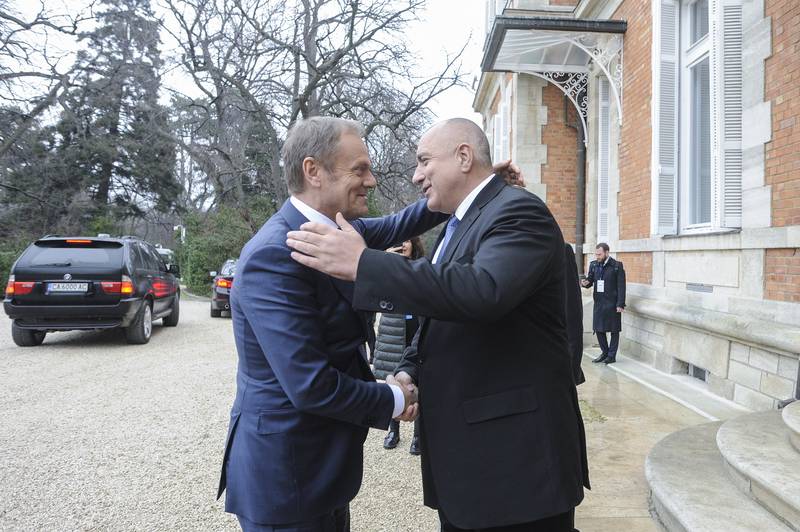 Donald Tusk, Boyko Borissov | © Council of the EU
Donald Tusk, Boyko Borissov | © Council of the EU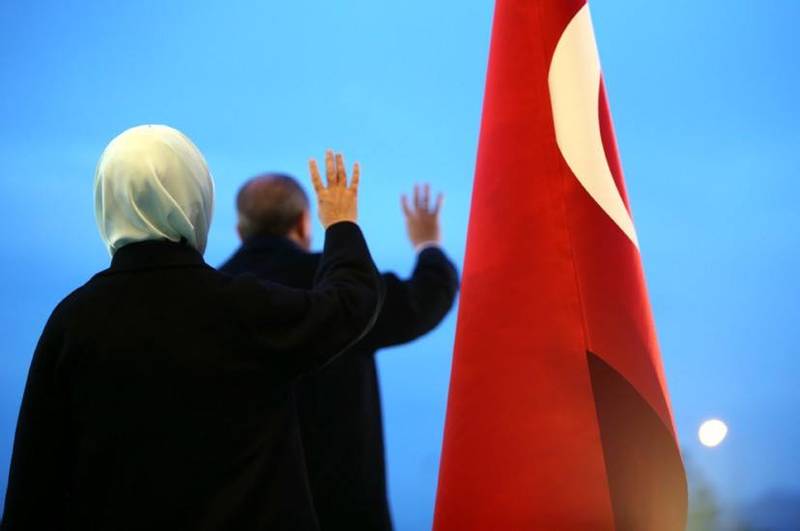 | © Turkey Presidency
| © Turkey Presidency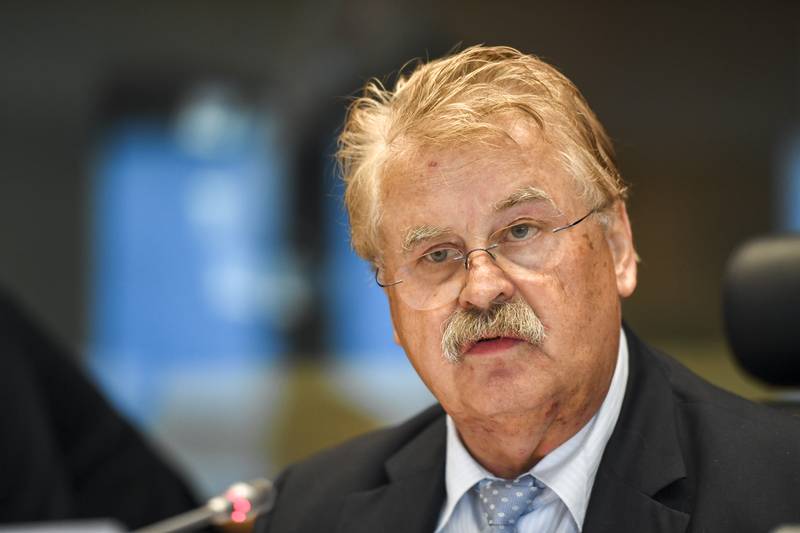 Elmar Brok | © European Parliament
Elmar Brok | © European Parliament